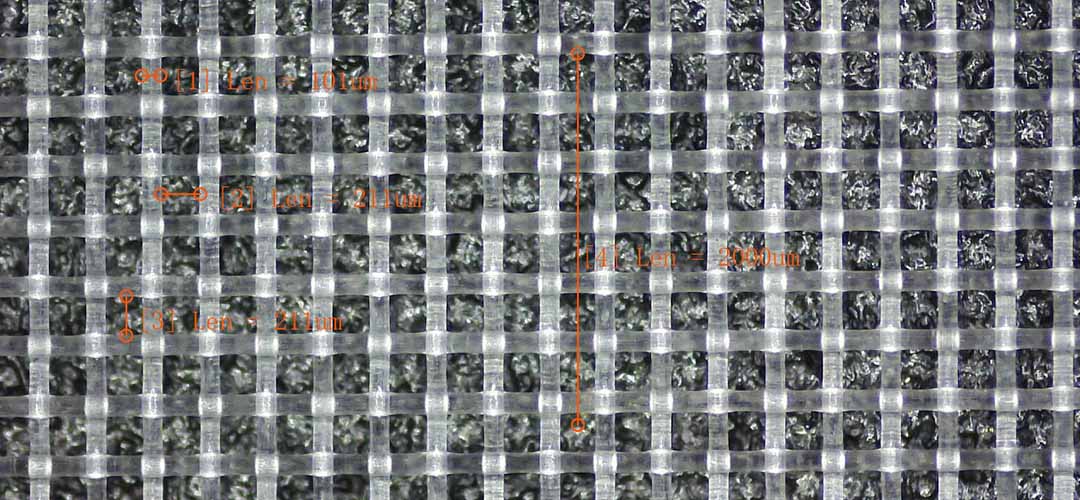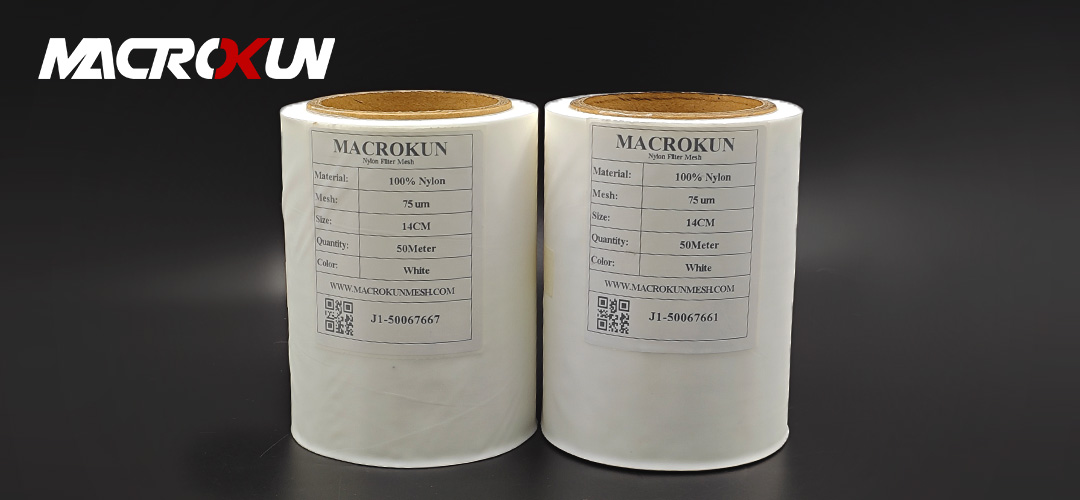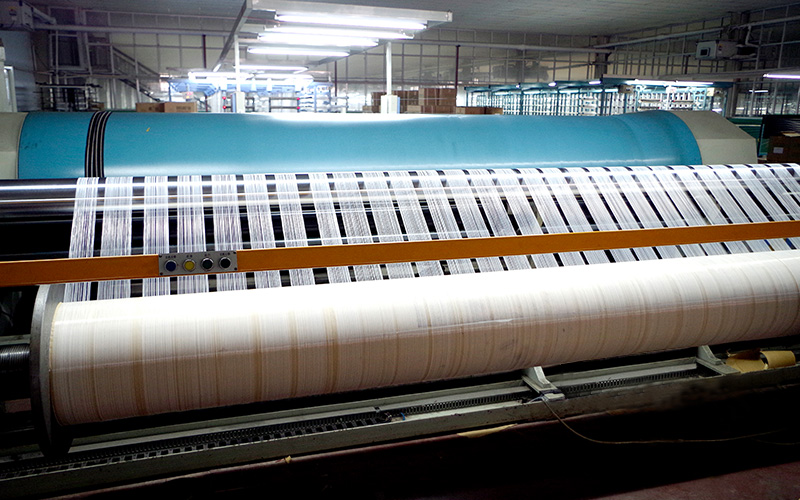Nylon mesh is a versatile material that has found numerous applications in various industries, one of which is filtration systems. Nylon mesh sieves are commonly used in filtration systems due to their durability, flexibility, and efficiency in separating particles of different sizes. In this article, we will explore the top applications of nylon mesh for sieves in filtration systems and the benefits of using this material.

One of the key benefits of using nylon mesh for sieves in filtration systems is its durability. Nylon is a strong and resilient material that can withstand high temperatures and harsh chemicals, making it ideal for use in industrial filtration systems. Nylon mesh sieves can be used repeatedly without losing their effectiveness, making them a cost-effective option for businesses looking to improve their filtration processes.
Another advantage of nylon mesh sieves is their flexibility. Nylon mesh can be easily molded into different shapes and sizes to fit specific filtration requirements. This flexibility allows for customization of sieves to meet the unique needs of different industries and applications. Whether filtering large particles or fine particles, nylon mesh sieves can be tailored to achieve optimal filtration results.
In addition to durability and flexibility, nylon mesh sieves are also known for their efficiency in separating particles of different sizes. The fine mesh of nylon sieves allows for precise filtration, ensuring that only particles of a certain size pass through while larger particles are retained. This level of precision is crucial in industries such as pharmaceuticals, food and beverage, and water treatment, where the quality of the final product depends on the purity of the filtration process.
Nylon mesh sieves are widely used in various industries for a range of applications. In the pharmaceutical industry, nylon mesh sieves are used to filter out impurities from medications and ensure product quality and safety. In the food and beverage industry, nylon mesh sieves are used to separate solids from liquids and achieve the desired consistency in products such as juices, sauces, and dairy products. In the water treatment industry, nylon mesh sieves are used to remove contaminants and impurities from water sources, ensuring clean and safe drinking water for communities.
Overall, the top applications of nylon mesh for sieves in filtration systems include pharmaceuticals, food and beverage, water treatment, and many other industries where precise and efficient filtration is essential. The benefits of using nylon mesh sieves in filtration systems are numerous, including durability, flexibility, and efficiency in separating particles of different sizes. Businesses looking to improve their filtration processes can benefit greatly from incorporating nylon mesh sieves into their systems.
Nylon mesh is a versatile material that has found numerous applications in various industries, one of the most common being in filtration systems. Nylon mesh sieves are widely used in filtration processes to separate particles of different sizes and shapes. The unique properties of nylon mesh make it an ideal choice for filtration applications, as it offers excellent durability, flexibility, and chemical resistance.
One of the key advantages of using nylon mesh for sieves in filtration systems is its high tensile strength. Nylon is a strong and durable material that can withstand high pressure and temperature conditions without losing its shape or integrity. This makes nylon mesh sieves ideal for filtering out particles of varying sizes, from large debris to fine particles, without the risk of tearing or breaking.
In addition to its strength, nylon mesh is also highly flexible, allowing it to conform to the shape of the filtration system and provide a tight seal. This flexibility ensures that the mesh sieve can effectively capture and retain particles of all sizes, preventing them from passing through the filtration system and contaminating the final product. The flexibility of nylon mesh also makes it easy to clean and maintain, as it can be easily removed and washed without losing its shape or effectiveness.
Another key benefit of using nylon mesh for sieves in filtration systems is its chemical resistance. Nylon is a non-reactive material that is resistant to a wide range of chemicals, making it suitable for use in a variety of filtration applications. Nylon mesh sieves can be used to filter out particles from liquids, gases, and even solid materials without the risk of chemical degradation or contamination. This makes nylon mesh an ideal choice for industries that require strict quality control and purity standards in their filtration processes.
Nylon mesh sieves are also highly customizable, allowing for precise control over the size and shape of the filtration holes. This level of customization ensures that the mesh sieve can be tailored to the specific requirements of the filtration system, providing optimal filtration efficiency and performance. Nylon mesh sieves can be manufactured in a wide range of sizes, shapes, and configurations to suit different filtration applications, from coarse filtration to fine particle separation.

Overall, nylon mesh is a highly versatile material that offers numerous benefits for filtration systems. Its high tensile strength, flexibility, chemical resistance, and customization options make it an ideal choice for a wide range of filtration applications. Whether filtering out particles from liquids, gases, or solid materials, nylon mesh sieves provide efficient and reliable filtration performance. With its durability and longevity, nylon mesh sieves are a cost-effective solution for industries looking to improve their filtration efficiency and quality control standards.
Nylon mesh is a versatile material that is commonly used in filtration systems for a wide range of applications. Its durability, flexibility, and resistance to chemicals make it an ideal choice for sieves in various industries. In this article, we will explore some of the top applications of nylon mesh in filtration systems.
One of the most common uses of nylon mesh in filtration systems is in the food and beverage industry. Nylon mesh sieves are used to filter out impurities and contaminants from liquids and powders, ensuring that the final product meets quality standards. The fine mesh size of nylon sieves allows for precise filtration, making them ideal for separating particles of different sizes.
Another important application of nylon mesh in filtration systems is in the pharmaceutical industry. Nylon sieves are used to separate and purify active pharmaceutical ingredients (APIs) from other substances in the manufacturing process. The high chemical resistance of nylon mesh ensures that the sieves can withstand harsh cleaning agents and maintain their integrity over time.
In the chemical industry, nylon mesh sieves are used for a variety of filtration applications. They are commonly used to separate solids from liquids, remove impurities from chemical solutions, and ensure product quality in manufacturing processes. The flexibility of nylon mesh allows for easy customization of sieve sizes and shapes to meet specific filtration requirements.
Nylon mesh is also widely used in environmental filtration systems, such as water treatment plants and air pollution control systems. Nylon sieves are used to remove contaminants and pollutants from water and air, ensuring that the environment remains clean and safe. The durability of nylon mesh makes it a reliable choice for long-term filtration applications in these industries.
In the automotive industry, nylon mesh is used in filtration systems to ensure the quality and performance of engine components. Nylon sieves are used to filter out particles and debris from engine oil, fuel, and coolant, preventing damage to critical engine parts. The high temperature resistance of nylon mesh makes it suitable for use in automotive filtration systems that operate under extreme conditions.
In the manufacturing industry, nylon mesh is used in a wide range of filtration applications, such as separating particles from liquids, removing impurities from chemicals, and ensuring product quality in production processes. Nylon sieves are essential components of filtration systems in industries such as electronics, textiles, and plastics, where precise filtration is crucial for product quality.
Overall, nylon mesh is a versatile material that offers numerous benefits for filtration systems in various industries. Its durability, flexibility, and resistance to chemicals make it an ideal choice for sieves in food and beverage, pharmaceutical, chemical, environmental, automotive, and manufacturing applications. Whether it’s separating particles from liquids, purifying chemicals, or removing contaminants from air and water, nylon mesh plays a vital role in ensuring the quality and performance of filtration systems across different industries.
Maintenance Tips for Nylon Mesh Sieves in Filtration Systems
Nylon mesh sieves are widely used in filtration systems across various industries. These sieves play a crucial role in separating particles of different sizes, ensuring that only the desired particles pass through while the rest are retained. To ensure the optimal performance and longevity of nylon mesh sieves, proper maintenance is essential. In this article, we will discuss some important maintenance tips for nylon mesh sieves in filtration systems.
First and foremost, regular cleaning is crucial to keep nylon mesh sieves in top condition. Over time, particles and debris can accumulate on the mesh, reducing its effectiveness. To clean the sieves, start by removing them from the filtration system. Gently tap the sieves to dislodge any loose particles. Next, rinse the sieves with clean water to remove any remaining debris. Avoid using harsh chemicals or abrasive cleaners, as they can damage the nylon mesh. After rinsing, allow the sieves to air dry completely before reassembling them into the filtration system.
In addition to regular cleaning, it is important to inspect nylon mesh sieves for any signs of damage. Over time, the mesh can become worn or develop tears, compromising its filtration efficiency. Inspect the mesh carefully, paying attention to any areas that appear frayed or weakened. If any damage is detected, it is recommended to replace the sieve promptly to maintain optimal filtration performance. Regular inspections can help identify potential issues early on, preventing further damage and ensuring the longevity of the sieves.
Another important maintenance tip is to handle nylon mesh sieves with care. Avoid rough handling or excessive force, as this can cause the mesh to stretch or tear. When removing or installing the sieves, use gentle and controlled movements to minimize the risk of damage. Additionally, it is advisable to store the sieves in a clean and dry environment when not in use. This helps prevent the accumulation of dust or moisture, which can affect the performance of the sieves.

Furthermore, it is crucial to follow the manufacturer’s guidelines for the proper use and maintenance of nylon mesh sieves. Each sieve may have specific recommendations regarding cleaning methods, temperature limits, and other important considerations. By adhering to these guidelines, you can ensure that the sieves are maintained correctly and perform optimally. If you are unsure about any aspect of maintenance, it is always best to consult the manufacturer or a qualified professional for guidance.
Lastly, it is important to keep a record of maintenance activities performed on nylon mesh sieves. This includes documenting cleaning dates, inspections, and any repairs or replacements made. By maintaining a comprehensive maintenance log, you can track the history of each sieve and identify any recurring issues. This information can be valuable in troubleshooting problems and making informed decisions regarding the maintenance and replacement of nylon mesh sieves.
In conclusion, proper maintenance is essential for nylon mesh sieves in filtration systems to ensure optimal performance and longevity. Regular cleaning, careful handling, and thorough inspections are key aspects of maintenance. Following manufacturer’s guidelines and keeping a maintenance log are also important practices. By implementing these maintenance tips, you can maximize the efficiency and lifespan of nylon mesh sieves in filtration systems, ultimately benefiting your business and ensuring the quality of your filtration processes.
Pre: Micron Mesh Fabric: A Guide to Its Versatility and Durability
Next: Top Industries That Rely on Nylon Mesh Filters for Precision Filtration

MACROKUN has established long-term and stable cooperative relations with many transportation companies such as China Post, DHL, FEDEX, USPS, UPS, etc. Of course, MACROKUN can also provide air and sea transportation. The powerful logistics system enables all MACROKUN'S Printing Mesh, Filter Mesh and Filter Bags and so on to be easily and efficiently transported to any place. For quotes and inquiries, please email our sales team.





